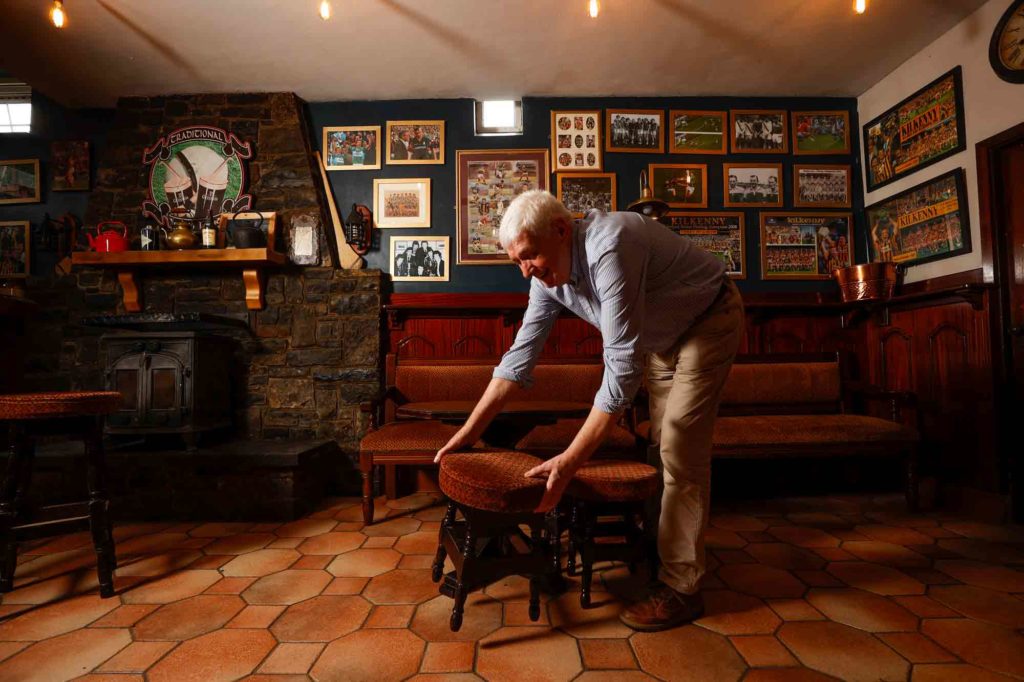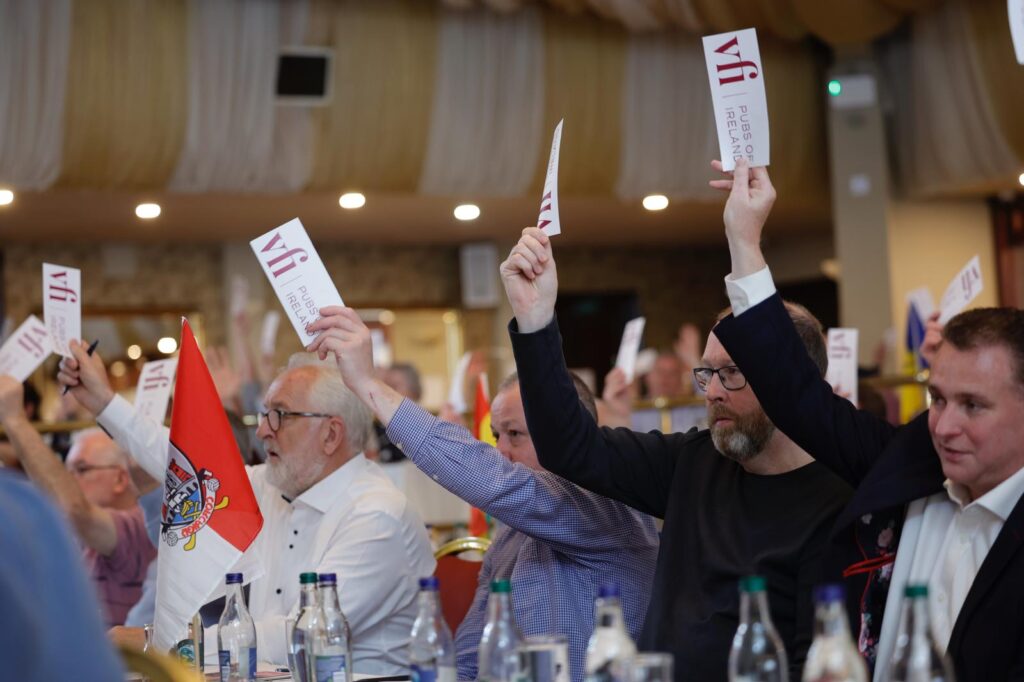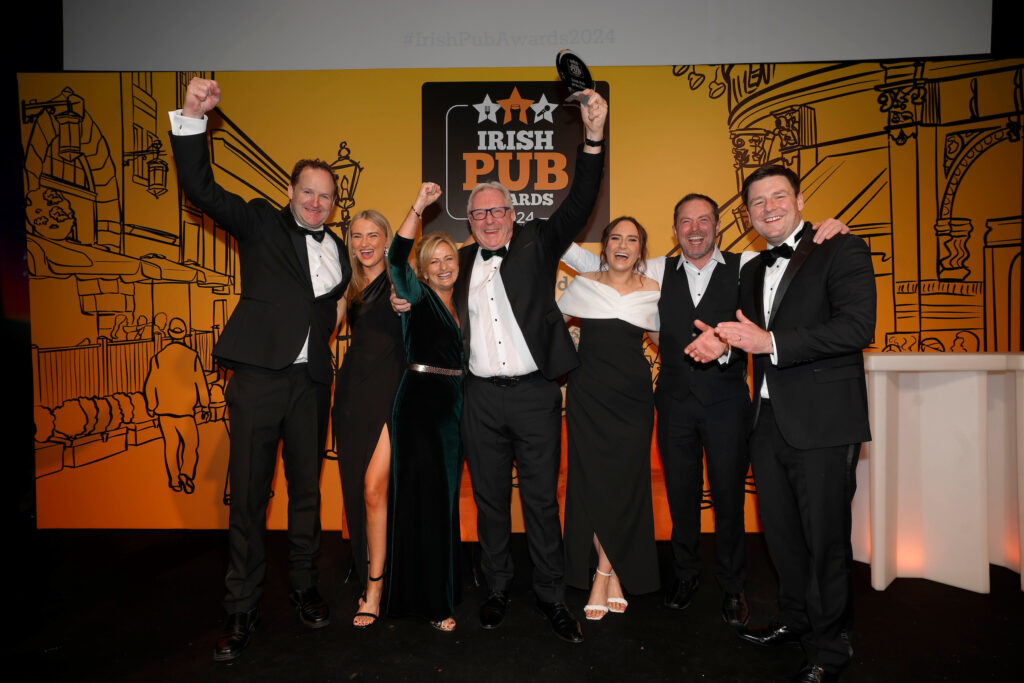Irish tourism and hospitality groups are today urging the Government to stave off a growing commercial crisis within the sector before it is too late. They are calling for immediate action in the upcoming Budget with a splitting of hospitality VAT and re-introduction of the lower 9% rate for food services. The enormous challenges facing the sector are laid bare in a new economic report examining the root causes of a worrying downsizing among hospitality food businesses throughout the country.
- Hospitality and tourism groups urge Government to split the rate of hospitality VAT
- Prior to VAT increase, annual taxes from sector were already up at least €585m versus 2018
- Commercial model severely damaged by 13.5% VAT and Government-imposed cost increases
- Hospitality food services facing into a bleak future with average food margins now at 1.9%
The report by economist Anthony Foley reveals that, even when operating under the previous 9% VAT rate, hospitality businesses within the wider tourism industry generated record levels of taxes for the exchequer. Last year, net tax receipts from the hospitality sector alone reached an all-time high of €1.86 billion according to an analysis of data from the Revenue Commissioners. Figures show that, prior to increasing the rate of VAT last September, the hospitality sector was already generating at least €585 million in additional taxes for the State on an annualised basis compared with 2018, when the rate of VAT was also at 9%.
As a result of the higher 13.5% VAT rate, it is now estimated that the annual tax take from the sector will increase to €2.33 billion this year, some €1.17 billion higher than in 2018. This equates to a 100% increase in annual taxes, resulting in an unsustainable burden for the sector at a time when hospitality businesses are struggling to survive. This analysis calls into question the rationale for the VAT increase given the severe damage that Government policies are already doing to tourism and hospitality, the country’s largest indigenous and regional employer. Meanwhile figures from the Department of Enterprise indicate that Government employment policies are expected to contribute to a 14.5% increase in payroll costs for the sector this year on top of significant increases imposed over the previous two years.
The report sheds further light on the alarming deterioration in the commercial model of hospitality food services as a result of the cumulative impact of last September’s VAT increase, changes in consumer spending due to cost-of-living pressures, and a raft of large increases in employment-related costs driven by Government policy changes. The effect has been a fundamental undermining of the sector marked by a significant increase in restaurant and pub closures, reductions in the days and hours of opening for hospitality businesses and a narrowing of the range of food offering.
The report notes that average margins for food services have been decimated, having dropped to 1.9% of turnover compared with 7.2% in 2019. Taken alongside recent Fáilte Ireland figures, this points to a dramatic decline in viability with 68% of food and drinks enterprises seeing a drop in business volumes this summer compared to last year and 84% seeing a drop in profitability.
Mr Foley notes that the provision of a sufficient range, quality and availability of the food experiences for domestic consumers and overseas visitors is a key element of Ireland’s tourism and hospitality offering and is essential to the long-term sustainable development of the wider industry. The cutting back in food service capacity and availability is a significant concern and risks substantially altering the nature of our tourism product which could eventually result in declines in tourism activity across several fronts, including type of tourist coming to Ireland, the length of stay and numbers of visitors. Any such damage to the country’s wider tourism ecosystem would have potentially major negative impacts on downstream business.
The report concludes that, in the absence of measures such as a restoration of the 9% rate of VAT, the sector will experience a significant decline with many more direct closures and job losses with additional indirect negative economic impacts. Modelling a potential 10% impact on the sector, the report found that such a scenario could lead to a reduction in overall tourism and hospitality expenditure of over €1 billion, a drop of €174 million in taxes and potential job losses of over 21,000.
Commenting on the results the Chief Executives of the Irish Tourism Industry Confederation (ITIC), Restaurants Association of Ireland (RAI), Vintners Federation of Ireland (VFI), Irish Hotels Federation (IHF) and Licensed Vintners Association (LVA) called on the Government to take urgent action to address the enormous challenges facing food service businesses:
“Today’s report reveals a stark reality for hospitality businesses the length and breadth of the country in that current Government policies are fundamentally at odds with the long-term interests of our sector and wider tourism industry. We are facing a perfect storm, largely as a result of short-sighted decisions by Government. It is imperative that the 9% rate of VAT is re-introduced for hospitality food service businesses, which are struggling to deal with exceptionally tight margins, falling food sales and significant increases in operating costs due to Government imposed measures.
“Government inaction now poses an enormous risk to our wider hospitality and tourism industry which, as one of Ireland’s largest indigenous employers, supports over 280,000 livelihoods some 70% of which are outside of Dublin. It is essential that the Government does everything possible to assist struggling businesses and put our sector on a more stable footing. At a minimum, this must include the reinstatement of the 9% VAT rate for food-related hospitality services in the upcoming Budget. Anything short of this will further fuel the crisis facing large parts of our sector with worrying long-term implications for the viability of Irish tourism and hospitality.”
Comments on behalf of:
Eoghan O’Mara Walsh, CEO, Irish Tourism Industry Confederation
Adrian Cummins, CEO, Restaurants Association of Ireland
Pat Crotty, CEO, Vintners Federation of Ireland
Tim Fenn, CEO, Irish Hotels Federation
Donall O’Keeffe, CEO, Licensed Vintners Association


